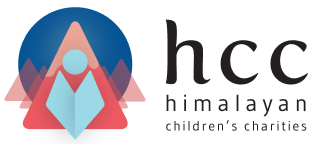Our goal is to empower at-risk children to live lives of dignity, self-sufficiency, and generosity. In Nepal, children in rural and marginalized communities are the most vulnerable segment of an extremely poor population already at risk of child marriage, child labor and human trafficking.
Nepali children average only 8 years of schooling, and as of 2012, only 25% of children who enroll in the 1st grade successfully complete grade 101. Many children are forced to leave school to work and, according to UNICEF, 33.9% of children between the ages of 5-14 are involved in child labor, including in hazardous industries and bonded labor2. Additional studies by the National Human Rights Campaign, the United Nations, and others, estimate that between 10,000 – 20,000 Nepali children are trafficked for sexual and labor exploitation each year, to neighboring countries such as India and China and into Nepal’s urban centers3,4,5. Bringing education and support to children and local communities is vital to raising awareness and helping prevent human trafficking.
Poor children face the compounding problems of poverty, including lack of basic resources such as potable water, medical services, and access to education. Recent studies show sponsorship of children in impoverished countries has a significant impact on their lives, their futures and their local communities. Child support through NGO sponsorships significantly increases the years of schooling completed, and the probability and quality of employment. Importantly, “sponsored children exhibit significantly higher levels of self-esteem, aspirations, and self-expectations and lower levels of hopelessness”.6


By providing quality education, mentorship and a loving family environment, the HCC model serves to fight the crippling grip of extreme poverty and prejudice. Our programs help shift how at-risk students view themselves, expanding what they believe is possible and affecting what they can achieve. HCC is dedicated to the development of each student as a whole person. HCC’s unique Peak Program supports qualified students through college or technical degrees, and HCC remains a helpful resource and stable family environment into adulthood. Our graduates give back to the community with a profound sense of gratitude and responsibility. They offer an authentic perspective and can help guide and provide solutions to those in need. Where the world sees an insurmountable crisis, our graduates see potential for a more positive future.
1 UNESCO & Government of Nepal – Education for All: National Review Report 2001- 2015; 2UNICEF – The State of the World’s Children, 2015 Statistical Tables; 3National Human Rights Campaign – Trafficking in Persons Especially on Women and Children in Nepal, 2011 Report; 4United Nations Office on Drugs and Crime – Global Report on Trafficking in Persons 2012; 5UNICEF Trafficking of Children and Women in Nepal Q&A; 6Wydick,B., Glewwe, P. & L. Rutledge (2013) Does International Child Sponsorship Work? A Six-Country Study of Impacts on Adult Life Outcomes. Journal of Political Economy, Vol. 121, pp. 393-436

